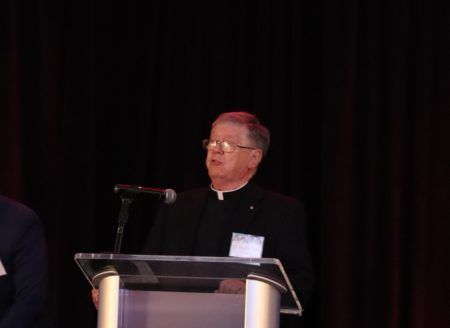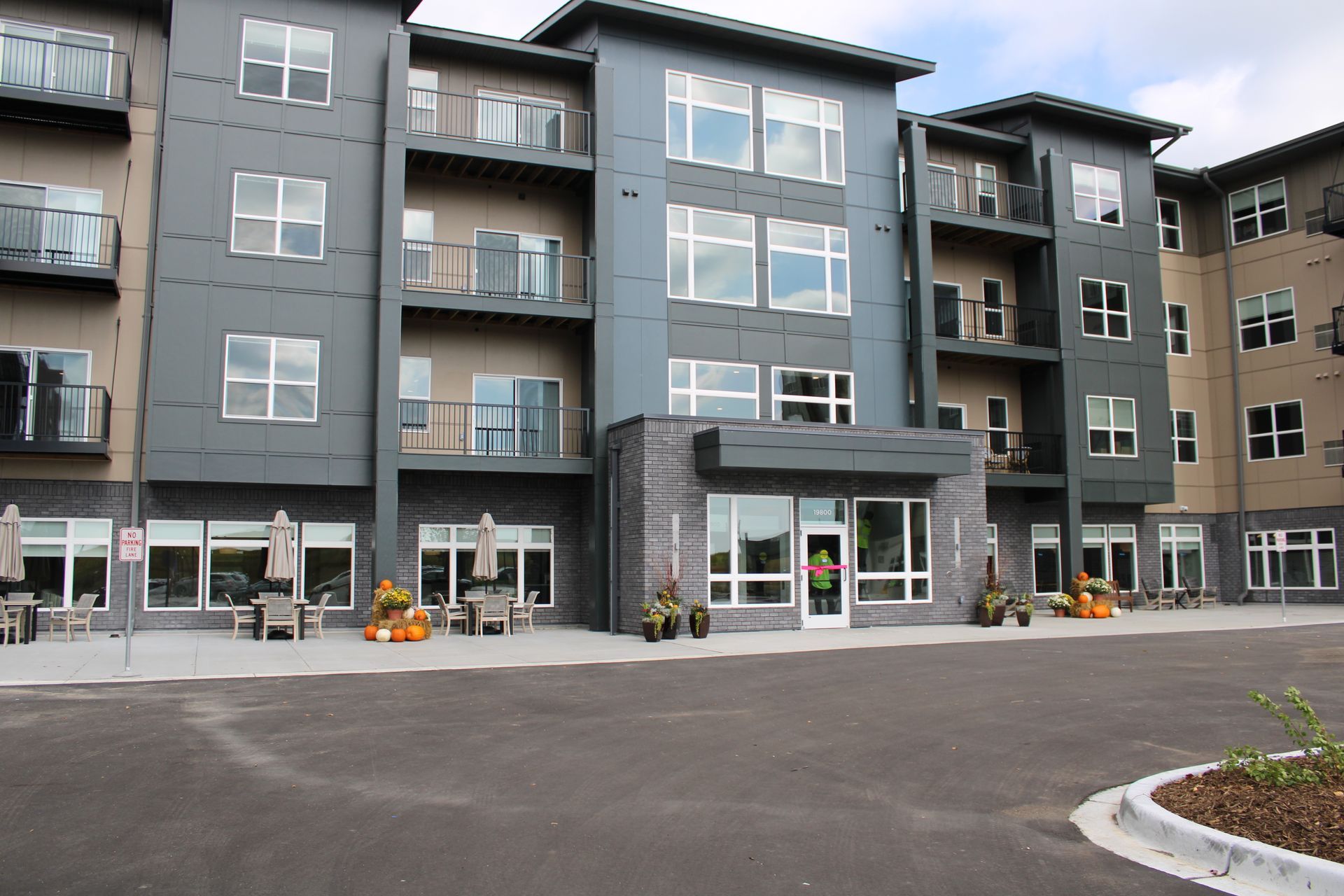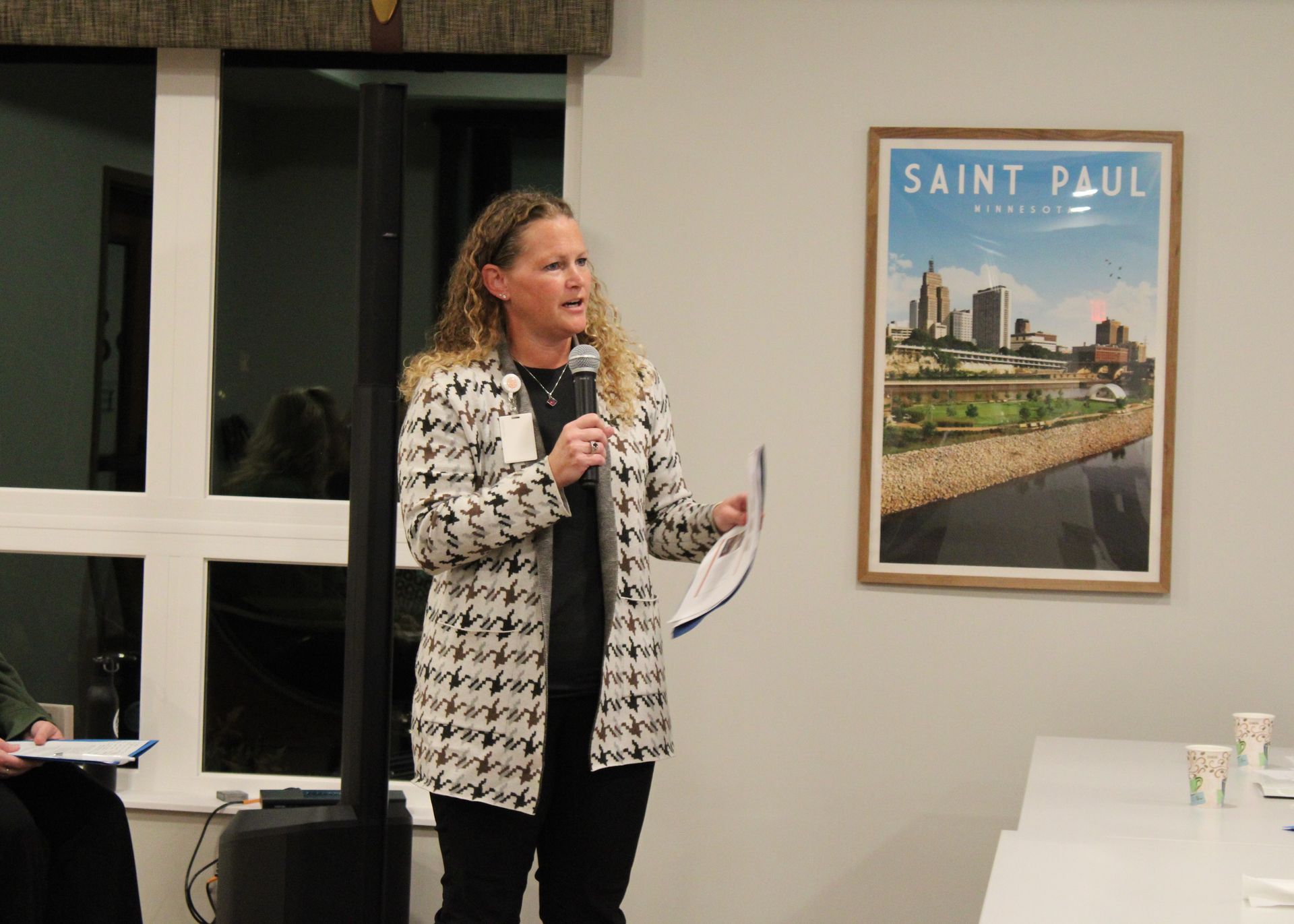
Precautions help protect seniors in care facilities
The Catholic Spirit | Joe Ruff and Barb Umberger | March 26, 2020

“This is something we can all do for one another,” Fr. Matthew Ehmke told the congregation at 10:30 a.m. Mass March 8 at Saint Therese of New Hope.
Presiding at the Mass, he was addressing liturgical restrictions in the Archdiocese of St. Paul and Minneapolis, such as not using holy water and avoiding physical contact during the sign of peace, in order to curb spread of the coronavirus (COVID-19).
Just 10 days later, as the virus spread across Minnesota, Archbishop Bernard Hebda suspended all public Masses.
Now, Catholic residents of Saint Therese watch Mass on television in their rooms. Fr. Ehmke is exploring the possibility of distributing Communion to residents of the independent and assisted living facility. Visitors are not allowed in, unless a loved one is deathly ill. Residents can leave to go shopping and meet other needs, and many still eat in the dining area, but they abide by rules for social distancing set by health officials, Fr. Ehmke said.
Saint Therese is one example of the many providers with new restrictions, like visitor restrictions, that have gone into effect in Minnesota and many other parts of the country. These are seen as precautions to help protect seniors in care facilities in the face of the COVID-19 pandemic and the respiratory illness it causes.
According to the Centers for Disease Control and Prevention, older adults are at higher risk for severe illness from COVID-19. Eight of 10 deaths reported in the U.S. have been adults age 65 and older. The advanced age of many long-term care residents, underlying health conditions and proximity to others can increase risk.
Facility administrators and clinical staff look to ongoing guidance from organizations including the CDC, the Minnesota Department of Health, the Centers for Medicare and Medicaid Services, and local and county public health agencies. The agencies regularly communicate specific guidelines on topics ranging from cleaning practices to visitor screening and restrictions.
The focus is on residents, but effective policies and procedures also help protect employees, vendors and visitors from becoming sick or passing on illness.
Beyond compliance with policies to protect residents’ health, facilities prioritize keeping family members informed and keeping life as normal and meaningful as possible for residents.

Fr. Ehmke, 81, has lived at Saint Therese for six years, and he helps with Masses and other pastoral care. Residents and employees have calmly implemented safety procedures, he said. Many are accustomed to similar precautions, though usually not as strict, when influenza and other viruses make their seasonal appearances, he said.
“When you get old, you’ve been through a thing or two,” he said.
About
At Saint Therese, our heartfelt purpose since 1968 has been a people first approach to living well by providing senior care and services where every life we touch feels welcomed, respected, and heard. We achieve this by doing ordinary things with extraordinary love every single day. Contact us to learn more.







